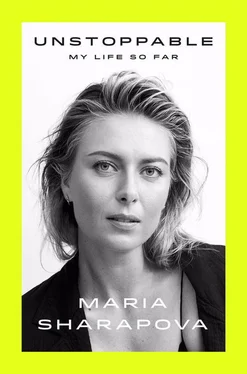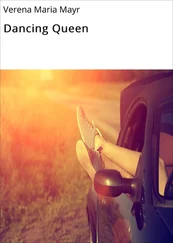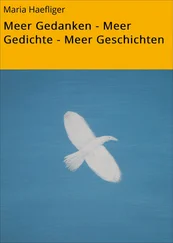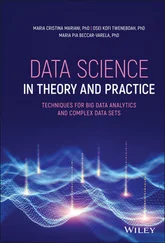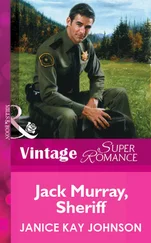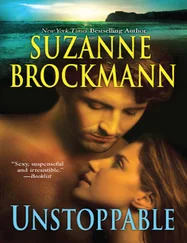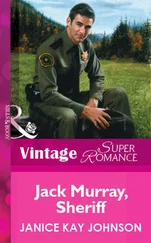* * *
The ride to Bradenton was dark and blurry, like something out of a Van Gogh painting. We got in at around 9:00 p.m. My father called the academy, and, however he managed it in Russian, made our situation clear enough that a shuttle was sent to pick us up from the station. It was pitch-black when we arrived. I remember blocky buildings and dark courts, palm trees swaying. A man at the gate heard us out, wrote down what we told him—a message would be delivered—then sent us away. It was Sunday night, he explained. Everyone was gone or asleep. He called a cab, which took us to the closest hotel, a Holiday Inn Express. First lesson: If there’s anything worse than putting “Inn” after a hotel’s name, it’s adding the word “Express.”
My father was very careful, very suspicious. He triple-locked our hotel room door, shut the dead bolt, and hooked the chain. When we got into bed, he took the money out of his front pocket and put it under the pillow. He was sure someone would come in at night and take everything. “This way,” he explained, “the robber will have to wake me to get the money, and that will be his last mistake.”
We lay in the dark, talking. I was not scared, but I was nervous. Here I was, in this strange hotel room, in this strange place, waiting only for the moment when I could go out on the court and hit. When I hit, I would relax. When other people saw me hit, everything would be OK. I knew exactly what I had to do. My part was clear, which allowed me to relax and leave the rest to others.
Yuri was in a big rush in the morning. Packing our bags, gathering our gear. We called a taxi and checked out. We were in the cab, heading back to the academy, when Yuri started to freak out. He’d felt so settled in the hotel, slept so deeply, that he’d forgotten all about the money. He started cursing in Russian. The driver had no idea what was going on. Yuri got him to turn around and race back. We pulled up right outside the room, Yuri jumping out even before the car stopped. The door was open and the cleaning cart was outside. Yuri burst through the door. The maid was in the bathroom, the bed was unmade. He turned over the pillow, and there, thank God, was the money. He slid it into his pocket, and soon we were back on Highway 41.
When I asked Yuri if he remembered this incident, he laughed, then sighed, saying, “Masha, Masha, Masha. When you think of all the crazy luck we had, some of it bad but most of it good… We crossed this river like people who think they are walking on logs only to learn, on the far side, it’s been crocodiles the entire time.”
Our message had been delivered. They were expecting us at the academy. There was even a Russian translator.
And a plan. I would be sent onto the courts with a group of girls my age. I’d do drills, hit some balls, and an assessment would be made. I felt like a freak amid all those American girls. First of all, I was younger than any of them by at least two years. Second, they stood together in a circle, laughing and gossiping, and I couldn’t understand a word of it.
In a situation like that, you think whatever is being said is being said about you. And that it’s not nice. These were rich girls who, for whatever reason, had been judged by their parents to have talent that could be brought out at the academy. And they paid for that. Big money. A year at Bollettieri’s is probably more than a year at college. Unless you’re on scholarship, you come from money, with the best rackets and best shoes and best gear. And here I was, with a single change of clothes, an oversized chopped-down racket, and shoes from a factory in Minsk. I looked weird. And they laughed. And continued laughing, right up to the moment that I got to hit. First off, it relaxed me. I calmed down, remembered why I was there. Then, almost at once, the instructor could see, “This girl is not like the others.”
I spoke to that instructor about this years later. He said, “Well, you know, the deal is, I was half asleep, early morning, going through the drills, thinking about my lunch break, and you came up, smaller than everyone, and just basically knocked my head off.”
He took me to an empty court so we could hit alone, me and him, back and forth, five, ten minutes. Then he went to a phone at the side of the court and made a call. (A phone on a tennis court? I had never seen anything like that.) He was calling Nick Bollettieri. He said, “Hey, boss, I got something here you need to see right away.”
He walked me to center court, ground zero at the academy. At this point, we had to leave Yuri behind. That’s the rule: no parents on center court. It was the first time I remember being separated from my father since we’d left Sochi. I did not like it. Then I was scared. Who were these people, where was I going, would I make it back?
It’s hard to untangle my first impression of Nick from the way I came to feel about him later. He wasn’t tall or short, and what you noticed was that crazy gray hair and those teeth so bright you could see them a hundred yards away. His arms were thin and sinewy and his skin so tanned it was purple and leathery. Here was a guy who’d clearly spent too much time outdoors. Nick grew up in the Bronx, New York, the youngest son in a big family. Tennis was not their sport—New York meant basketball. Nick went into the military after college, then moved to Florida. He had wanted to be a lawyer, but was at the University of Miami for less than a year. Still, that is where he picked up tennis. He played, then taught friends who wanted to play, and realized he was a better instructor than player. He began giving lessons, then made his way through the hotel circuit as a tennis pro. He saved money, honed his sales pitch, gathered investors, and opened his school.
By the time I got there, Bollettieri’s academy was a campus of low-slung buildings and dorms, hard courts and clay courts, center court burning under stadium lights. It was already famous, the breeding ground for Andre Agassi and Jim Courier and Anna Kournikova, Monica Seles and Mary Pierce. Nick had become a legend, almost a cartoon tennis guru. He’d been through something like seven wives and so many players. What did he care about a little girl from Russia? He was probably signing divorce papers as I walked up. At heart, he was really just a businessman. He’d built a great industry. When you think of the tennis academies in the United States, you think of Bollettieri’s. There’s nothing else like it. I never thought of him as a coach. I thought of him as a teacher, even a kind of mentor.
I did not hit with Nick that day. I hit with an instructor as Nick stood in the shadows, watching. He is a great watcher, a noticer of tendencies and habits and character and other things, big and small. It’s his talent. Vision. He sees the end in the first moment of the beginning. When putting together this book, I went back and spoke to people who were important in my life. I spoke to Nick in his office at the academy. He is older now, a little frail, but still 100 percent Nick. When I asked him about that first meeting—“Do you remember it?”—he laughed. “Of course, I remember it,” he said. “I’d heard about you—someone had called and told me, ‘There’s this tiny girl from Russia, and the way she plays!’ But, honestly, I get a call like that every few days, so usually I do not pay too much attention. Then you showed up and my instructor called and said, ‘Nick, you’ve got to see this.’ That was unusual. And I could see it, right away, as soon as I watched you hit two or three balls. You were just six years old but you were hammering it. And it was not just the power—it was your footwork, your grip. Perfect, all of it just perfect. Of course, a lot of that can be taught. The amazing thing was your concentration. You never lost focus, you could just do it again and again. You didn’t have all the moves at first, you didn’t have the strength, but you did have the mentality. And that can’t be taught.”
Читать дальше
